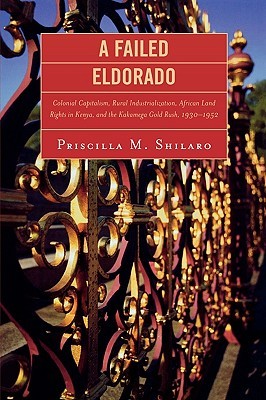
- We will send in 10–14 business days.
- Author: Priscilla M Shilaro
- Publisher: University Press of America
- ISBN-10: 0761836063
- ISBN-13: 9780761836063
- Format: 15.5 x 22.8 x 2.2 cm, softcover
- Language: English
- SAVE -10% with code: EXTRA
Reviews
Description
This work explores Britain's attempt to take land from the Bantu-Luyia peoples of Western Kenya for gold mining following the discovery of gold in the North Kavirondo (NK) reserve in 1931. The discovery led to the Kenyan gold rush, in which local European settler farmers and mining prospectors converged on Kakamega. The presence of mining prospectors in Western Kenya and the move to transform a rural agrarian terrain into an industrial one had important economic, political, socio-cultural, medical, and environmental ramifications for the inhabitants. This book illuminates the struggles of mine workers and dispossessed African households by looking at their actions and reactions toward the emerging British colonial venture of the region. Fundamentally, this work captures the largely undocumented histories of 'the common people' who lived through Kenya's failed eldorado.
EXTRA 10 % discount with code: EXTRA
The promotion ends in 12d.03:46:09
The discount code is valid when purchasing from 10 €. Discounts do not stack.
- Author: Priscilla M Shilaro
- Publisher: University Press of America
- ISBN-10: 0761836063
- ISBN-13: 9780761836063
- Format: 15.5 x 22.8 x 2.2 cm, softcover
- Language: English English
This work explores Britain's attempt to take land from the Bantu-Luyia peoples of Western Kenya for gold mining following the discovery of gold in the North Kavirondo (NK) reserve in 1931. The discovery led to the Kenyan gold rush, in which local European settler farmers and mining prospectors converged on Kakamega. The presence of mining prospectors in Western Kenya and the move to transform a rural agrarian terrain into an industrial one had important economic, political, socio-cultural, medical, and environmental ramifications for the inhabitants. This book illuminates the struggles of mine workers and dispossessed African households by looking at their actions and reactions toward the emerging British colonial venture of the region. Fundamentally, this work captures the largely undocumented histories of 'the common people' who lived through Kenya's failed eldorado.


Reviews